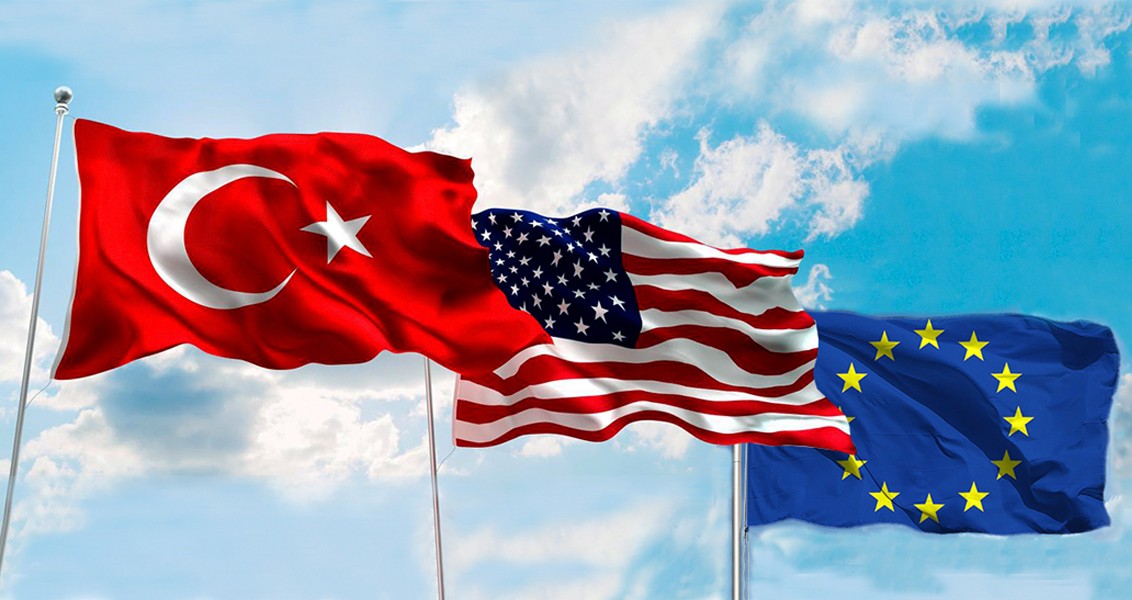
The West must respect its alliance with Turkey
The S-400 air defense system's delivery to Turkey has sparked debate among Western governments on Ankara's future treatment. The question at hand goes beyond concerns about the fate of Turkey-U.S. relations. This is much bigger than one key NATO ally removing another key ally from the joint F-35 fighter jet program.
Share
The S-400 air defense system's delivery to Turkey has sparked debate among Western governments on Ankara's future treatment. The question at hand goes beyond concerns about the fate of Turkey-U.S. relations. This is much bigger than one key NATO ally removing another key ally from the joint F-35 fighter jet program.
The Western alliance has been unable to manage its relations with Turkey for some time. According to Western media, the Turks, specifically President Recep Tayyip Erdoğan, are to blame for tensions. The Turkish leader, they argue, became authoritarian and gradually moved his country away from the West. It is no secret that this argument is part of an attempt to mount pressure on Turkey. Yet this claim, also popular among Turkish opposition leaders, has been stripped of its impact. To be clear, President Erdoğan had ignored such accusations in the first place. Yet now the charges of "authoritarianism" and "drift from the West" bear no significance at home or abroad.
After all, the Istanbul rerun election demonstrated that elections remain the only legitimate and feasible way of transferring power in Turkey. Moreover, the S-400 deal enjoys notable public support in Turkey. Where Turkey finds itself opposing the United States and the European Union, Erdoğan's policies on the Eastern Mediterranean are even more popular.
The problem is that Western governments continue to engage in concrete violations of Turkey's rights. Those violations accumulate over time. In other words, Turkey's vital interests that are often ignored by its allies are at stake – not Erdoğan's preferences. On Cyprus, the European Union treats Turkey and the Turkish Republic of Northern Cyprus (TRNC) unfairly. On terrorist organizations like the People's Protection Units (YPG) and the Gülenist Terror Group (FETÖ), the United States maintains a hostile stance toward the Turks.
Erdoğan is not looking for ideological divergence from the West and other traditional Turkish allies. He is merely pursuing what is for the best of his country's national interest.
Erdoğan is unquestionably a popular leader at home because he has remained in power despite smear campaigns and conspiracies piled up against him because he looks after Turkey's interests.
As such, questions about the West's treatment of Turkey are full of contradictions. To threaten the Turks without meeting their legitimate demands, to "discipline" and "punish" them is out of the question. Imposing sanctions on Turkey alone will obviously encourage Ankara to make new strategic choices. Despite Russian eagerness to exploit tensions between Turkey and the West, Western governments remain indecisive on Turkey.
Turkey's geopolitical importance renders its exclusion from NATO or the Western alliance impossible. Yet it is no longer a country whose own interests can be ignored either – especially under Erdoğan's leadership. Failure to respond to the S-400 agreement would allow Russia into the NATO weapons market. Any attempt to make an example out of Turkey or remove it from NATO, however, pushes the country toward China and Russia. Likewise, Turkey will start looking for alternatives if the United States fails to deliver its F-35 fighter jets. In the end, Turkey will have been pushed outside the Western alliance structurally. In the long run, that exclusion will lead to a radical geopolitical break in Europe, the Balkans, the Eastern Mediterranean and the Middle East.
One thing is clear: There is no point in claiming that "Turkey is bigger than Erdoğan." Tensions between Turkey and Western governments go beyond Erdoğan's personal preferences. The Turkish president has tried to pursue his nation's interests through negotiations with Western leaders for 17 years. The Turkish public is so well informed about their national interests that this issue is much bigger than Erdoğan now. Even if a new leader comes to power in Turkey, this national red line is here to stay.
The only way to avoid such problems is to acknowledge Turkey's national interests and develop a new kind of alliance that facilitates their pursuit.
[Daily Sabah, 22 July 2019]
Tags »
Related Articles






